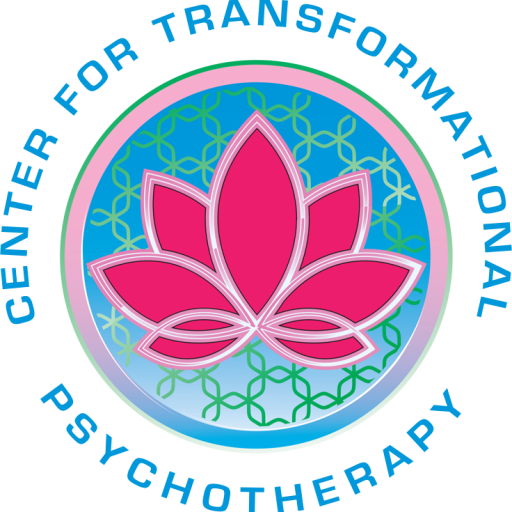Providing Ketamine-Assisted Psychotherapy (KAP)

What You Need to Know about Ketamine and KAP
Ketamine is a Schedule III medication that was released in 1979 by the FDA with an indication for anesthesia Its burgeoning use in treating depression was based on an awareness of its psychedelic properties and as a legally available medicine has been used for many different reasons ever since its inception. Our use in assisted psychotherapy is the result of a long and deep awareness of its properties for growth and liberation from suffering and being stuck. Whenever a medicine is used in a manner different than the FDA indication—anesthesia in ketamine’s case—its use is known as ‘off-label’. Countless medicines are administered off label as learning from experience of their various effects becomes known. With respect to ketamine and its exploration, there is an increasing variety of successful applications that include suicidality, agitation, depression both as the first line intervention and for treatment resistant depression, for PTSD, OCD, substance dependencies, PMS and PMDD, somatization, dissociation, pain, relationship issues, spiritual crises, existential despair, for insight and expanded awareness—ketamine’s applications keep growing as we work with it.
KAP – Ketamine-Assisted Psychotherapy for Substance Use
We provide Ketamine-Assisted Psychotherapy (KAP) to support individuals in overcoming substance use and co-occurring disorders. Research demonstrates that ketamine can promote abstinence, reduce cravings, and extend the time to relapse, creating a critical window for deeper therapeutic integration. Brain imaging studies reveal that ketamine enhances neuroplasticity, enabling the brain to rewire itself, which can transform how it processes cravings, encodes drug-related memories, and fosters motivation for lasting change. By combining ketamine with psychotherapy, KAP helps reduce relapse rates and supports sustained sobriety. While KAP is not a detox solution or a replacement for residential treatment, it is an effective option for individuals who have completed detox and are committed to maintaining their recovery journey.
Is Ketamine-Assisted Psychotherapy Right for You?
We recognize the profound impact mental health conditions can have on your life. If conventional treatments have not provided the relief you need, Ketamine-Assisted Psychotherapy (KAP) could be the solution you’ve been seeking—just as it has been for hundreds of our patients. At our center, we take a personalized approach, tailoring every step of the process to fit your unique needs and circumstances.
Our program is designed to address a wide range of challenges, including depression, treatment-resistant depression, trauma, PTSD, OCD, relationship issues, existential distress, and more. As a comprehensive psychiatric clinic, we work closely with you to determine the best course of action and coordinate care with your therapists and medical providers to ensure a fully integrated approach to your well-being.
How Ketamine Works
Neuroscience remains in its early development and theories about ketamine’s mechanism of action remain unproven. Rodent studies are notoriously difficult to apply to humans—31 million neurons to 86 billion in humans—a staggering difference for making interpretations of data. The best hypothesis is based on ketamine’s action on the glutamate neurotransmitter and more specifically on its block to specific N-methyl-D-aspartate (NMDA) receptors. Ketamine’s effects take place even when some other psychiatric medications are being used—such as antidepressants and mood stabilizers. This is because the glutamate neurotransmitter system is differentiated from the dopamine and serotonin neurotransmitter systems. Successful KAP treatment may well result in the discontinuation of these other medicines.
Ketamine is rapidly metabolized and its principle effect with a single administration–and depending on dose, the sensitivity of the person, and the route of administration–ranges from 30 minutes to 75 minutes enabling for most recipients a profound experience with a relatively rapid return to functionality.
KAP is the most successful approach utilizing ketamine because it focuses on you, your experience and the people you wish to involve in your care.
The Duration of the Beneficial Effects
Immediate positive effects from ketamine often occur but in general there is a need for multiple sessions with KAP. Positive changes in cognition, mood, self and other awareness, reduction of stress and a broadening of consciousness often occur quickly and in the weeks that follow. Multiple sessions over months, supported by at-home sessions tend to be the rule and we estimate an average course of treatment extends intermittently over six months. Each person is different and there is no formula. Our clinical experience with KAP is vast and we do our best to create a treatment plan with you–after getting to know you.
It needs be said that KAP is a remarkably rapid treatment–as is attested to by most people who come to us and comment that they have achieved breakthroughs and improvement in their lives after years of struggle and therapy.
Ketamine’s side effects are minimal, with the most frequent being nausea and vomiting, the latter occurring in about 5% of our people. Both are treatable. A few people cannot tolerate ketamine and we cannot continue with them as a result. There is also transient hypertension. We will discuss inclusion and exclusion criteria with you as we review your Intake materials, your history, and at the actual Intake. You will receive an extensive Informed Consent which we shall review with you and answer all your questions and concerns.
We Value Your Privacy
If you are eligible and will be undergoing our ketamine therapy, you can be at ease knowing that we will keep your records confidential, and we are HIPAA compliant. A signed release form is required if you want to allow others, such as medical professionals, to access your files.
How we may use and disclose protected health information (PHI) about an individual:
We may use and disclose your PHI for treatment, payment, and healthcare operations as permitted by the Health Insurance Portability and Accountability Act (HIPAA). We may also use and disclose your PHI for other purposes as required or permitted by law. For example, if you fall ill and require hospitalization, we may disclose your PHI to your healthcare provider to ensure that you receive appropriate treatment. If someone poses a potential threat to themselves or others, we may disclose their PHI to law enforcement or other appropriate authorities to prevent harm.
Your rights with respect to the information and how to exercise these rights:
You have the right to inspect and obtain a copy of your PHI. You may also request that we make changes to your PHI, although we may deny your request under certain circumstances. You have the right to receive an accounting of disclosures of your PHI, and to request that we restrict certain uses and disclosures of your PHI.
If you have any questions or wish to exercise any of these rights, please contact us.
Our legal duties with respect to the information:
We are required by law to maintain the privacy and security of your PHI. We are also required to provide you with this Privacy Policy, and to notify you in the event of a breach of your PHI.
Welcome to The Center for Transformational Psychotherapy!
The Center for Transformational Psychotherapy Patients’ Bill of Rights per California Law
- You have the right to Timely Access to Medical Care.
- You are to be treated with dignity and respect by each clinic staff member.
- You have the right to Medical and Psychiatric Care that is free from discrimination on the basis of age, sexual orientation, gender, race, ethnicity, national origin, language, disease, disability, or religion.
- The Patients’ Bill of Rights ensures patient autonomy and dignity, including the rights to privacy, informed consent, and freedom of choice in your healthcare decisions.

Submit an Inquiry
Fill out your information below and someone from your team will be in touch with you to discuss your inquiry

